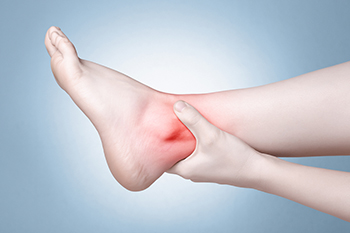
Ankle pain in runners can stem from overuse, improper technique, or weakness in the ankle joint. To prevent and manage this discomfort, it is essential to focus on strengthening and balancing exercises. Strengthening the ankle involves exercises such as calf raises and resistance band exercises that target the muscles around the joint, enhancing stability and reducing the risk of injuries. Balance training plays a vital role in preventing ankle pain. It involves exercises that improve proprioception and coordination, such as standing on one foot or using a balance board. Incorporating these practices into your routine can improve joint stability and overall foot alignment. Additionally, wearing supportive footwear and gradually increasing mileage can help to reduce strain on the ankles. If you are experiencing from ankle pain from running, it is suggested that you visit a podiatrist for effective treatment solutions.
Ankle pain can be caused by a number of problems and may be potentially serious. If you have ankle pain, consult with Keleigh Muxlow, DPM from Colorado. Our doctor will assess your condition and provide you with quality foot and ankle treatment.
Ankle pain is any condition that causes pain in the ankle. Due to the fact that the ankle consists of tendons, muscles, bones, and ligaments, ankle pain can come from a number of different conditions.
Causes
The most common causes of ankle pain include:
- Types of arthritis (rheumatoid, osteoarthritis, and gout)
- Ankle sprains
- Broken ankles
- Achilles tendonitis
- Achilles tendon rupture
- Stress fractures
- Bursitis
- Tarsal tunnel syndrome
- Plantar fasciitis
Symptoms
Symptoms of ankle injury vary based upon the condition. Pain may include general pain and discomfort, swelling, aching, redness, bruising, burning or stabbing sensations, and/or loss of sensation.
Diagnosis
Due to the wide variety of potential causes of ankle pain, podiatrists will utilize a number of different methods to properly diagnose ankle pain. This can include asking for personal and family medical histories and of any recent injuries. Further diagnosis may include sensation tests, a physical examination, and potentially x-rays or other imaging tests.
Treatment
Just as the range of causes varies widely, so do treatments. Some more common treatments are rest, ice packs, keeping pressure off the foot, orthotics and braces, medication for inflammation and pain, and surgery.
If you have any questions please feel free to contact our office located in Littleton, CO . We offer the newest diagnostic tools and technology to treat your foot and ankle needs.
